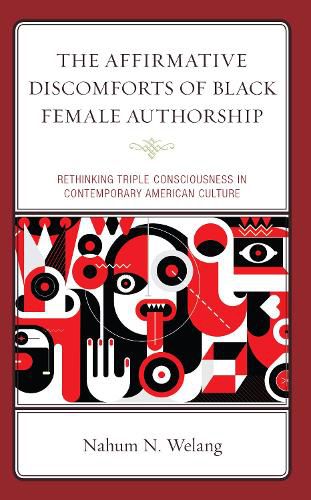Readings Newsletter
Become a Readings Member to make your shopping experience even easier.
Sign in or sign up for free!
You’re not far away from qualifying for FREE standard shipping within Australia
You’ve qualified for FREE standard shipping within Australia
The cart is loading…






Ubiquitous triple consciousness frameworks address the limitations of W.E.B Du Bois' seminal double consciousness concept by emphasizing a third gendered lens, a definite consciousness that legitimizes the rich complexities of the black American female experience.
In The Affirmative Discomforts of Black Female Authorship: Rethinking Triple Consciousness in Contemporary American Culture, the author rethinks this methodology by examining an interesting assemblage of contemporary black female authors (Roxane Gay, Beyonce and Issa Rae) across four disciplines (history, literature, music and television) whose contemporary multimedia works are engaging with a third lens the author conceptualizes as rupture.
This rupture, a simultaneous embrace and rejection of racial and gendered experiences that are affirmative but also contradictory, unsettling and ultimately unresolved, problematizes hegemonic notions of identity and boldly moves towards a potential shift, a shift on the cusp of profound rethinking and reimagination.
$9.00 standard shipping within Australia
FREE standard shipping within Australia for orders over $100.00
Express & International shipping calculated at checkout
Ubiquitous triple consciousness frameworks address the limitations of W.E.B Du Bois' seminal double consciousness concept by emphasizing a third gendered lens, a definite consciousness that legitimizes the rich complexities of the black American female experience.
In The Affirmative Discomforts of Black Female Authorship: Rethinking Triple Consciousness in Contemporary American Culture, the author rethinks this methodology by examining an interesting assemblage of contemporary black female authors (Roxane Gay, Beyonce and Issa Rae) across four disciplines (history, literature, music and television) whose contemporary multimedia works are engaging with a third lens the author conceptualizes as rupture.
This rupture, a simultaneous embrace and rejection of racial and gendered experiences that are affirmative but also contradictory, unsettling and ultimately unresolved, problematizes hegemonic notions of identity and boldly moves towards a potential shift, a shift on the cusp of profound rethinking and reimagination.